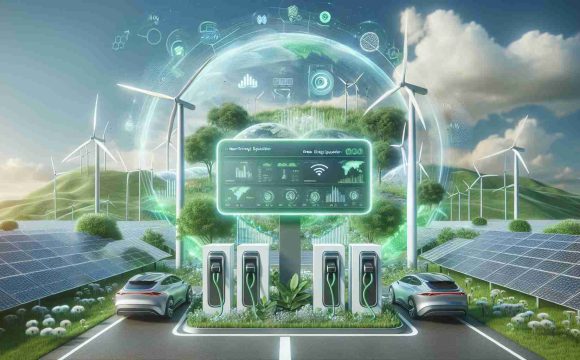The UK government recently announced a groundbreaking strategy to revolutionize its energy storage capabilities. As part of the vision for clean energy by 2030, the government aims to expand the current battery energy storage system (BESS) capacity significantly.
In a comprehensive 138-page document from the Department of Energy Security and Net Zero (DESNZ), the plan outlines an ambitious goal of reaching a storage capacity of 22 gigawatts (GW), an impressive increase from the existing 4.5 GW capacity. This dramatic expansion is crucial for enhancing the flexibility of Great Britain’s energy grid, accommodating the fluctuating demands of renewable energy sources.
Additionally, the strategy emphasizes the importance of long-duration energy storage (LDES) solutions, which are essential for balancing energy supply and demand over extended periods. The government also aims to introduce reforms related to standing charges for on-site storage systems, encouraging further investment in local energy solutions.
This initiative not only supports the UK’s commitment to cleaner energy but also positions the country as a leader in battery storage technology. With these steps, the UK is poised to enhance its energy resilience and reduce reliance on fossil fuels. As developments unfold, industry stakeholders and consumers alike will be keenly watching how this ambitious plan progresses toward a more sustainable energy future.
UK’s Bold Move Towards a Sustainable Energy Future: Expanding Energy Storage Capacity
UK Government’s Strategy for Energy Storage
The UK government has unveiled a transformative strategy aimed at vastly improving its energy storage capabilities, a critical component for a sustainable energy future. This ambitious plan, encapsulated in a comprehensive 138-page document from the Department of Energy Security and Net Zero (DESNZ), aims to bolster the current battery energy storage system (BESS) from 4.5 gigawatts (GW) to an impressive 22 GW by 2030.
Why Increased Energy Storage Capacity Matters
The dramatic expansion of energy storage capacity is paramount for several reasons:
– Flexibility for Renewable Energy: Enhanced storage systems will allow for better integration of renewable energy sources such as wind and solar, which can be intermittent in nature. By balancing supply and demand, energy storage helps to stabilize the grid.
– Support for Decentralized Energy Solutions: By addressing standing charges related to on-site storage usage, the strategy encourages local energy solutions, enhancing community resilience and energy independence.
Key Features of the Energy Storage Strategy
1. Long-Duration Energy Storage (LDES): The emphasis on LDES technologies is vital for maintaining energy balance over longer time periods. This will facilitate a more reliable energy system capable of meeting demands during peak hours or low generation periods.
2. Investment Incentives: The government plans to introduce reforms that will promote investment in energy storage. This includes financial incentives and regulatory changes to stimulate the market for innovative storage solutions.
3. Technological Innovations: The strategy encourages research and development in battery technologies, positioning the UK as a leader in this field. Innovations could include advancements in lithium-ion batteries, flow batteries, and even emerging technologies like solid-state batteries.
Pros and Cons of the New Strategy
Pros:
– Significant increase in energy storage capacity, enhancing the reliability of the energy supply.
– Greater integration of renewable energy sources, supporting the UK’s net-zero goals.
– Creation of jobs and economic growth within the energy technology sector.
Cons:
– Initial capital costs for expanding storage infrastructure could be substantial.
– The need for skilled labor and training in new technologies may present a challenge.
– Potential environmental concerns associated with large-scale battery production and disposal.
Insights and Predictions
Market analysis suggests that as the demand for renewable energy increases, so too will the necessity for advanced energy storage solutions. The UK’s energy storage capacity growth is expected to shift the global landscape, with countries looking to the UK as a model for large-scale battery deployment.
Security and Sustainability Aspects
– Energy Security: Enhanced storage capability will fortify the UK’s energy security against global supply fluctuations and geopolitical tensions, reducing reliance on imported fossil fuels.
– Sustainability Efforts: The focus on sustainable energy solutions aligns with global trends towards reducing carbon footprints and combating climate change, making the UK a frontrunner in sustainability initiatives.
Conclusion
The UK government’s ambitious plan to increase battery storage capacity to 22 GW reflects a crucial step towards a more sustainable and resilient energy future. With a focus on long-duration storage, technological innovation, and investment incentives, the UK is not only taking significant strides toward cleaner energy but is also setting a standard for other nations to aspire to.
For more information on the UK’s energy policies, visit the UK Government website.







